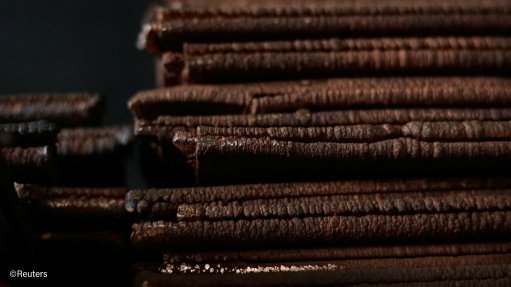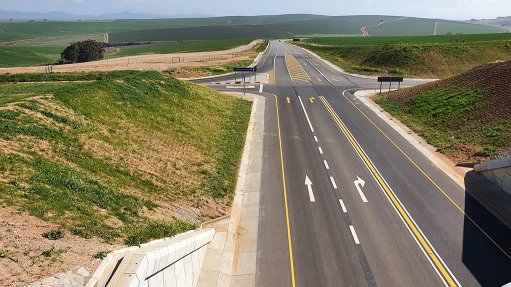Breaking the plastic wave – South Africa’s strategy to solving plastic pollution
This article has been supplied as a media statement and is not written by Creamer Media. It may be available only for a limited time on this website.
The waste and recycling sector led and participated in numerous events from 14 – 19 September 2020. They were joined by fellow South Africans who participated in the National Clean-Up and Recycle SA Week, National Recycling Day, World Clean-Up Day and International Coastal Clean-Up Day. Just the week before, Ocean Conservancy released its 2020 International Coastal Clean-up report, which highlighted the items most commonly found on South Africa’s beaches – cigarette butts, food wrappers, straws and stirrers, plastic bottles and caps.
“With the focus this past week on efforts to clean up our environment, one of the questions researchers are grappling with is what the response should be in dealing with the leakage of waste, and in particular plastic waste, to the environment”, says Prof Linda Godfrey, CSIR principal researcher and Manager of the Waste RDI Roadmap, an initiative of the Department of Science and Innovation.
Up until now, the approach to solving the plastic waste problem has been fragmented. Many have advocated for reducing plastics consumption, others for substitution with alternate materials, while some argue that the problem is simply a failure in waste management systems.
A recent study by The Pew Charitable Trusts and SYSTEMIQ, modelled, for the first time, a global intervention strategy. “The data-driven analysis, published in the report ‘Breaking the Plastic Wave’, shows us that there is no single, silver bullet to solving the ocean plastic pollution problem”, says Godfrey.
Both upstream and downstream solutions must be deployed together, and they must be deployed now, as a matter of urgency. The study shows that through system interventions, 78% of the plastic pollution problem can be solved by 2040 using current knowledge and technologies and at a lower net cost for waste management systems compared to a business as usual approach.
“It was important for South Africa to be part of this global study – to ensure that the conditions facing South Africa and Africa were represented in the model design and development, and that the findings of the study be used to facilitate change in how plastic and plastic waste are managed in South Africa”, says Godfrey.
African countries are facing increasing plastic consumption, and because of constraints in waste management, increasing plastic pollution. The report by SYSTEMIQ provides the evidence we urgently need to develop intervention strategies, which the system model shows, can be more cost-effective and provide greater social, environmental and economic benefit, than a business as usual approach. The underlying modelling results were published in the prestigious journal Science, on the 18 September 2020.
“We’d like to apply this model at a more local scale now to understand what our specific intervention strategy should be as a country, and how best we integrate reduction, substitution, recycling and disposal interventions that are appropriate for South Africa. We have to inform our response through evidence.
“The plastics debate can be a very emotive one. This is why evidence is so important in informing our decision-making and our policy development and implementation”, says Godfrey.
“Through the Waste RDI Roadmap, we’re continuously striving to have an evidence-based plastics discussion and to find new, innovative solutions to reduce the impact of waste plastic on the environment.” Recent projects funded under the Waste RDI Roadmap include a South African marine plastic pollution science review, published in the South African Journal of Science in May 2020.
Comments
Press Office
Announcements
What's On
Subscribe to improve your user experience...
Option 1 (equivalent of R125 a month):
Receive a weekly copy of Creamer Media's Engineering News & Mining Weekly magazine
(print copy for those in South Africa and e-magazine for those outside of South Africa)
Receive daily email newsletters
Access to full search results
Access archive of magazine back copies
Access to Projects in Progress
Access to ONE Research Report of your choice in PDF format
Option 2 (equivalent of R375 a month):
All benefits from Option 1
PLUS
Access to Creamer Media's Research Channel Africa for ALL Research Reports, in PDF format, on various industrial and mining sectors
including Electricity; Water; Energy Transition; Hydrogen; Roads, Rail and Ports; Coal; Gold; Platinum; Battery Metals; etc.
Already a subscriber?
Forgotten your password?
Receive weekly copy of Creamer Media's Engineering News & Mining Weekly magazine (print copy for those in South Africa and e-magazine for those outside of South Africa)
➕
Recieve daily email newsletters
➕
Access to full search results
➕
Access archive of magazine back copies
➕
Access to Projects in Progress
➕
Access to ONE Research Report of your choice in PDF format
RESEARCH CHANNEL AFRICA
R4500 (equivalent of R375 a month)
SUBSCRIBEAll benefits from Option 1
➕
Access to Creamer Media's Research Channel Africa for ALL Research Reports on various industrial and mining sectors, in PDF format, including on:
Electricity
➕
Water
➕
Energy Transition
➕
Hydrogen
➕
Roads, Rail and Ports
➕
Coal
➕
Gold
➕
Platinum
➕
Battery Metals
➕
etc.
Receive all benefits from Option 1 or Option 2 delivered to numerous people at your company
➕
Multiple User names and Passwords for simultaneous log-ins
➕
Intranet integration access to all in your organisation


















